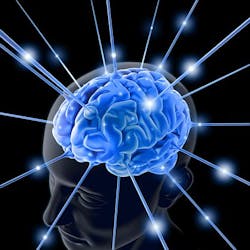U.S. intelligence experts kick off KRNS program to unlock secrets in the nature of knowledge
WASHINGTON, 21 June 2012. U.S. intelligence experts are preparing to ask for industry's help in unlocking secrets in the nature of knowledge in an effort to improve tools and training available to intelligence analysts. This is part of an upcoming program of the Intelligence Advanced Research Projects Activity (IARPA) in Washington called Knowledge Representation in Neural Systems (KRNS).
IARPA will brief industry on the KRNS program during a proposers' day on 12 July 2012 in the Washington area. The location of the briefings will be made available to those who register. IARPA is the research arm of the Office of the Director of National Intelligence in Washington. Briefings are in anticipation of an upcoming KRNS solicitation (story continues below).
The KRNS program seeks to develop computer algorithms that interpret neural activity in the human brain that can help explain how the human brain represents conceptual knowledge -- or how we understand the characteristics of objects and how they relate to one another. KRNS also seeks to develop ways to evoke and measure human thought using neural imaging methods such as functional magnetic resonance imaging and magnetoencephalography.
The KRNS program seeks to develop tools that not only help intelligence analysts resolve ambiguities, make inferences, and draw conclusions but also that acquire, organize and use knowledge better than ever before. Algorithms developed in the KRNS program also may help find better ways to train intelligence analysts and linguists.
The KRNS proposers day, which will be from 8:30 a.m. to 3 p.m. on 12 July, is to provide information and answer questions on KRNS, is to help potential proposers present their capabilities, as well as find potential team partners. Attendance is voluntary, and not required to submit KRNS proposals.
When making sense of intelligence data, analysts rely on rich repertoires of conceptual knowledge to resolve ambiguities, make inferences, and draw conclusions, IARPA officials explain. Conceptual knowledge refers to knowledge about the general properties of an entity, such as an apple is edible. Conceptual knowledge also refers to an object's relationships to other entities, such as an apple is related to orchards, grocery stores, etc.
Understanding how the human brain represents conceptual knowledge is a step toward building new analysis tools that acquire, organize and wield knowledge with unprecedented proficiency, IARPA officials say, which may lead to new ways for training analysts and language experts.
While previous research has looked into neural representations of single concepts, the KRNS program will focus on how the brain represents combinations of concepts -- or how someone might understand the difference between "the student was bored with the book," and "student," "bored," and "book."
The KRNS program will consider conceptual knowledge ranging from the concrete to the abstract, including: animate and inanimate objects; actions; physical and temporal settings; events; social roles; social interactions; emotions; properties; and conditions.
From KRNS bidders, IARPA officials are looking for multidisciplinary teams with expertise in neuroscience, cognitive science, machine learning, and linguistics. Researchers will be able to publish their findings in peer-reviewed academic journals.
Register for the KRNS proposer's day briefings no later than 5 July online at www.signup4.net/Public/ap.aspx?EID=KRNS11E. All attendees must show government-issued photo identification.
For questions or concerns contact the KRNS program manager, Brad Minnery, by e-mail at [email protected].
More information is online at https://www.fbo.gov/notices/f62dda5f37cbfdee4bf9935db5ca42c2.
Follow Military & Aerospace Electronics and Avionics Intelligence news updates on Twitter

